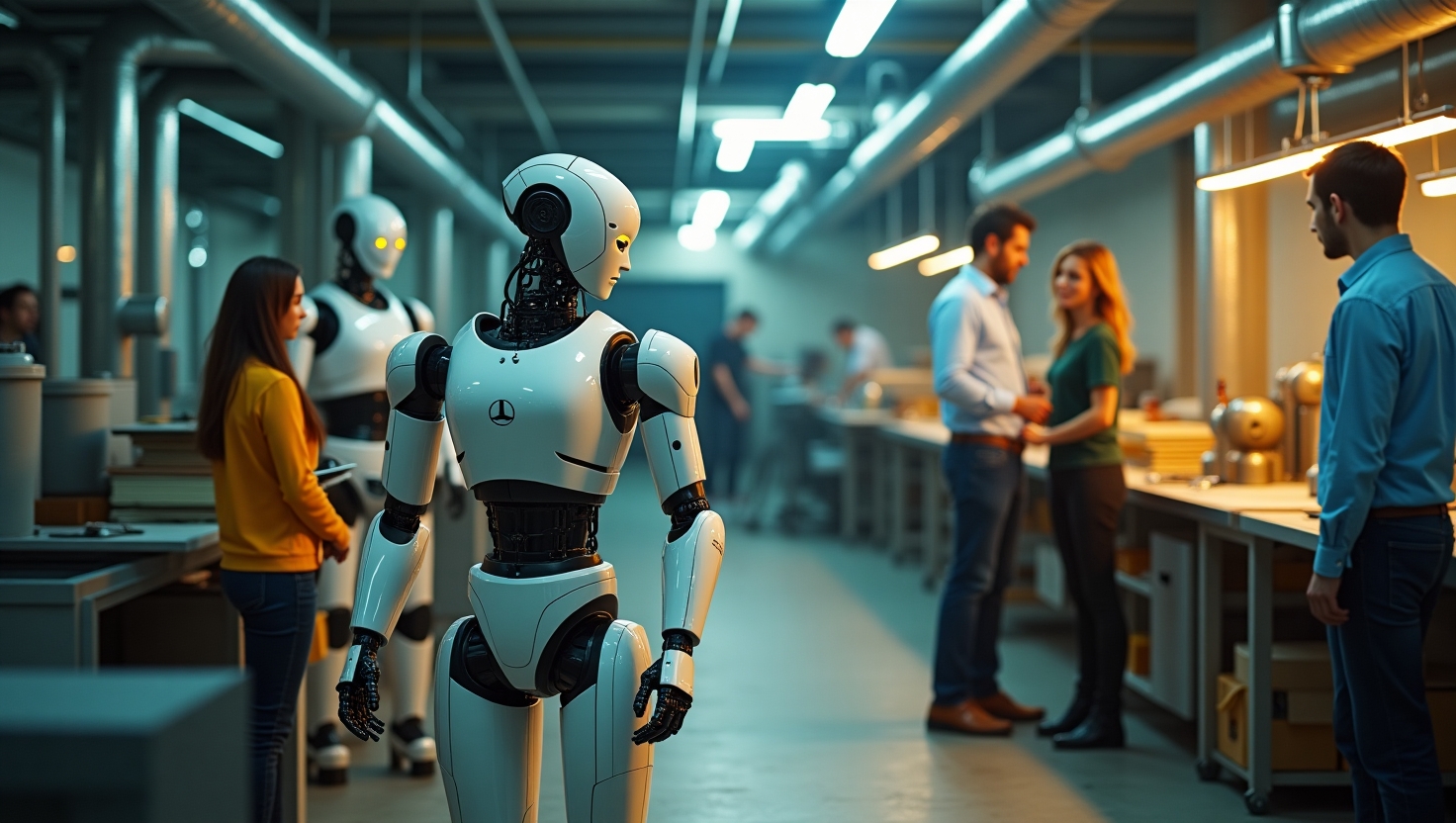Intelligent Systems: Transforming Industries through AI and Automation
Introduction
In the ever-evolving landscape of technology, intelligent systems stand at the forefront, catalyzing a transformative era across industries. These systems, driven by artificial intelligence (AI) and automation, are orchestrating a revolution that enhances operational efficiency, optimizes processes, and fosters innovation. From AI manufacturing to automation trends reshaping businesses, intelligent systems are the linchpins steering industries into new territories of productivity and innovation.
Background
Intelligent systems encompass a range of technologies that integrate AI with physical and digital environments to improve decision-making and process management. At their core, these systems harness algorithms and data analytics to mimic human cognition, enabling machines to perceive, learn, and act in dynamic settings.
One prominent area of impact is AI Manufacturing, where intelligent systems streamline production lines and supply chains. Physical AI, a concept describing the seamless merger of AI algorithms with tangible systems, represents a pivotal shift in automation trends. Initiatives like the Physical AI Fellowship launched by AWS, MassRobotics, and NVIDIA exemplify the commitment to nurturing this technological convergence. By supporting startups developing next-generation robotics, these programs underscore the transformative potential of intelligent systems (AWS Blog).
Trend
The rapid evolution of automation trends is marked by the growing synthesis of AI with physical systems. This convergence has led to a surge in the deployment of AI robots, with predictions indicating exponential growth. For example, AI robots’ market investments are projected to reach a staggering $124.26 billion by 2034. These trends underscore a significant shift from purely digital enhancements to comprehensive physical-digital synergies driving efficiency and functionality in industries (AWS Blog).
Bringing automation trends to life, initiatives like the Physical AI Fellowship lay the groundwork for technological diversification and scalability. By supporting innovators focused on integrating artificial intelligence into physical environments, AWS, alongside MassRobotics and NVIDIA, is paving the way for advancements that could redefine sectors traditionally reliant on human labor and manual processes.
Insight
Industry use cases provide concrete evidence of the transformative impact of intelligent systems. In manufacturing, companies like Amazon and Foxconn have reaped significant benefits. Amazon, leveraging intelligent systems, has realized a 25% boost in supply chain efficiency. Similarly, Foxconn reported a 40% reduction in deployment times, showcasing the pronounced competence intelligent systems bring to high-stakes operational environments (AWS Blog).
These advancements reveal that intelligent systems not only enhance current capabilities but also open new avenues for innovation. For instance, robust data integration and behavioral analytics enable predictive maintenance, reducing downtime and extending machinery life. Analogous to upgrading from a traditional assembly line to an automated smart factory, these systems amplify production scale while curtailing resource expenditure.
Forecast
The future of intelligent systems holds promising potential as industries continue to integrate AI into their core operations. Anticipated advances could make intelligent systems ubiquitous across sectors, pushing the boundaries of what automation can achieve. By 2034, investments in AI and automation are expected to reach unprecedented heights, further driving the evolution of AI robots in everyday industrial applications.
As intelligent systems fortify their role in manufacturing, anticipated developments include more nuanced human-robot collaborations and AI-enabled decision-support systems enhancing strategic planning and operational diagnostics. This ongoing progression promises not only to fuel economic growth but also to elevate human creativity by automating complex, repetitive tasks.
Call to Action
The era of intelligent systems is upon us, offering vast potential for industries willing to embrace the confluence of AI and automation. To stay at the cutting edge of these advancements, we invite readers to delve deeper into the possibilities of intelligent systems. Explore our related articles, discover trends shaping the future, and subscribe for updates on AI manufacturing advancements. For a more comprehensive understanding, visit AWS’s detailed exploration on the impact of AI on the physical world here.
Embrace the revolution—understand the tools, apply the knowledge, and lead in the intelligent systems arena.
